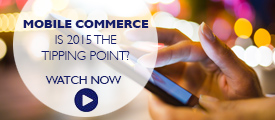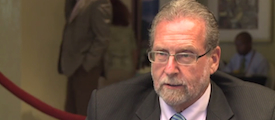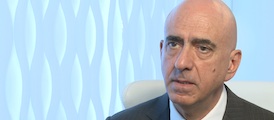Last year, the Metaverse was touted as the future of business. While that might certainly be the case at some point in the future, it feels that the enthusiasm for this project has waned.
The technology needed to experience Web 3.0 is still unfamiliar to many, but more importantly, there has been a huge backtrack in recent months from innovators such as Meta and Disney, as they have dramatically reduced their workforces dedicated to this sector.
On the other hand, Artificial Intelligence (AI) is growing in influence. We are familiar with AI through popular culture, and Hollywood movies have often highlighted the advantages and disadvantages very clearly, and often, dramatically!
Since Chat GPT was launched in November 2022, we have seen a sudden deluge of AI add-ons and features added to familiar websites, search engines, and productivity programmes. Devices we already own, suddenly have the ability to leverage the power of advanced AI…. for free.
There is no doubt that AI is disrupting the way we work, live and interact. Like all advancements, it has the potential to create both new opportunities and challenges for various sectors, and the hospitality industry is no different.
But what impact is this technology likely to have on recruitment in the hospitality industry?
Hospitality Skills
Before we look at how AI could affect recruitment, it is important to ask if AI might make a difference in the type of roles or skills that may become more sought after in future.
AI can enhance the efficiency and accuracy of many jobs across the sector by automating repetitive and routine tasks, such as data entry, reconciliation, invoicing and payments.
This can free up time and resources for employees to focus on more strategic and innovative activities. This could help hospitality professionals to generate new insights and recommendations, identify new opportunities and trends, and create new products and services.
While the reduction of manual tasks may certainly affect the number of employees required, it may also help augment the skills and capabilities of employees to help them to deliver more value for their businesses and guests. This would require the industry to continue to adapt and evolve roles and responsibilities and acquire new skills and competencies to leverage the power of these technological advancements.
Recruitment
We know that finding and hiring perfect candidates for hospitality roles is a challenging and time-consuming process. AI will certainly be able to help streamline and improve certain recruitment processes including:
- The screening and shortlisting of candidates based on their resumes, skills, qualifications and experience. AI could help save recruiters time and effort and reduce human bias and errors
- Providing personalised and timely communication, feedback and guidance throughout the recruitment journey. This can increase candidate engagement and satisfaction, and improve the employer brand
- Providing insights and recommendations for recruiters and hiring managers. This can help them make better and faster decisions, optimise their strategies, and identify talent gaps and opportunities.
- Helping candidates find and apply for roles that match their preferences, goals and potential. This can increase the quality and diversity of the talent pool, and reduce the turnover rate.
Understanding Bias in AI
A 2021 Forbes article, Understanding Bias in AI Enabled Hiring, it was highlighted how AI objectively assesses the data points and reduces assumptions, mental fatigue and bias that humans often succumb to.
While there is a risk of human bias being subconsciously programmed into the AI algorithm, there are still clear advantages to relying on AI to screen candidates on a large scale.
In 2019, a Harvard Business Review article, Will AI reduce Gender Bias in Hiring, it highlighted that AI does not need to engage in unconscious biases to penalise based on gender or other under-represented groups in order to get a self-esteem boost.
Reducing human bias is undoubtedly a fairer solution, but this lack of bias could also be a significant drawback to AI-based recruitment. If a business wanted to diversify its workforce or business culture, recruitment without any human judgement may not serve the purpose.
There are candidates out there with atypical work experiences that fail to meet the AI algorithm standards, who could potentially be the best fit in terms of their individual personality, interests, character and work ethics.
Our Conclusion
As specialists in people strategy, we recognise that our view comes from a position of bias, but we strongly feel that AI will never replace our consultants. It will likely become a powerful tool that can augment our capabilities and performance, by helping reduce mundane tasks. This will allow us to focus on the human aspects of people and performance strategies, such as building relationships, focussing on retention and culture, and providing added value to businesses and candidates.
If you would like to have a chat about your people strategy, please get in touch and we can chat – human to human – on Tel: +44 20 8600 1166.








